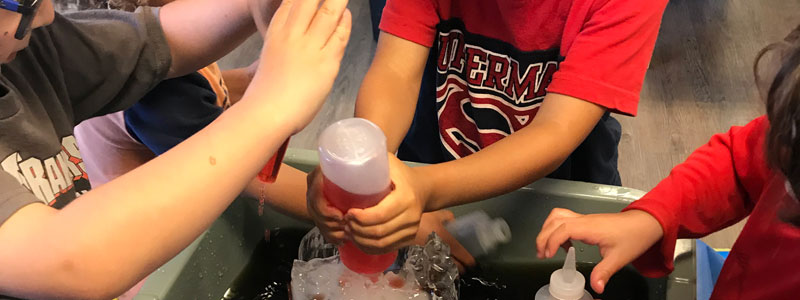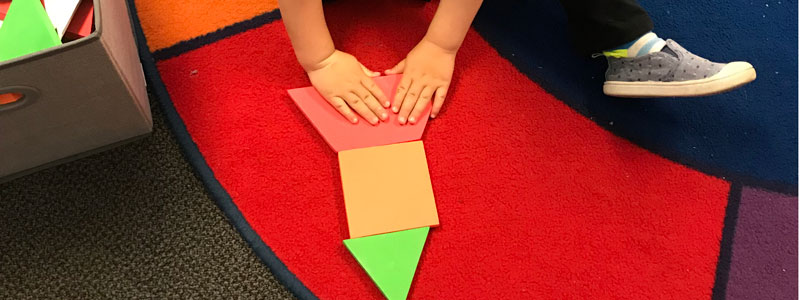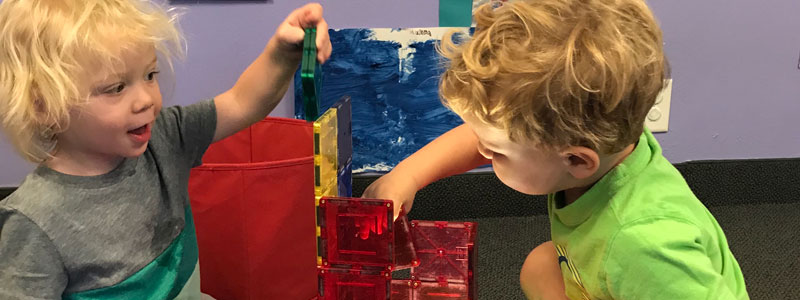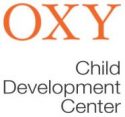
Our Philosophy
Young children learn best through developmentally-appropriate, hands-on, meaningful play experiences, and active engagement and interaction. We subscribe to the constructivist view of teaching and learning (Lev Vygotsky/Jean Piaget) and the concept that children construct their own learning and knowledge through their experiences and interactions. Children play an active role in the learning process, as they explore, experiment, and manipulate materials, ask questions, solve problems, and interact with peers and teachers. We view the teacher’s role as that facilitating and supporting children’s natural drive to discover and learn about the world around them. Teachers provide nurturing and a sense of safety, so that children to feel free to explore their environment, get deeply engaged in activity, and take reasonable risks. Teachers treat children with respect and seek to empower them. Teachers engage in meaningful interactions with children, form close relationships with them, and encourage them to express their ideas and feelings. Peer social interaction plays a fundamental role in the process of children’s development, and we view children’s interactions with each other as learning opportunities that enable them to build necessary social and communication skills.

Benefits of Play
Play is the primary way in which young children learn, grow and develop. Play is an active form of learning that unites the mind, body and emotions, involving the whole self and helping to develop the whole child. Play allows children to practice new cognitive, social-emotional, and physical skills, skills that they will need in the future. Play allows them to practice and learn in a low-stress, risk-free environment. Play helps children relate their previous learning to new experiences and information. Play helps children socialize successfully and learn how to get along with others. Through play with peers, children develop skills for seeing something from another’s point of view, cooperating, helping and sharing, leading and following, as well as for solving problems. Play enables children to learn about learning – through curiosity, exploration, invention, staying with a task, and in many other ways. Through play, children learn to like learning, because if feels so satisfying.

Curriculum
The curriculum is determined through our knowledge of age-appropriate educational experiences for young children, as well as through pursuing topics that are of interest to each particular group of children. A curriculum that follows children’s interests is known as an “emergent” or “child-driven” curriculum. Teachers listen to children’s interactions, observe their play and pay close attention to what sparks children’s interests. By following children’s curiosity about a particular topic, teachers can capitalize on children’s intrinsic motivation to learn, resulting in interested, engaged and enthusiastic learners.

Kindergarten Readiness
We see it as our role to prepare children for Kindergarten… and for life. This certainly involves children’s cognitive/intellectual development and mastery of basic academic knowledge/skills. These are crucial for success. We also believe that school readiness involves much more. We foster children’s development of a wide range of foundational skills, capacities and dispositions that will enable them to be ready to learn. Such non-academic school readiness learning includes areas such as: self-confidence, social-emotional competence, self-regulation, independence, curiosity, love of learning, initiative, focus/attention, persistence, critical thinking, problem-solving, and resilience.


